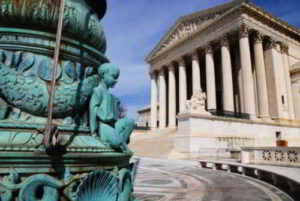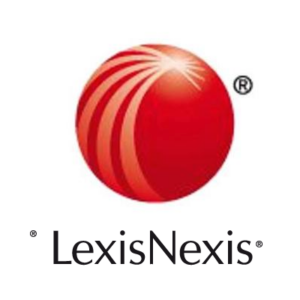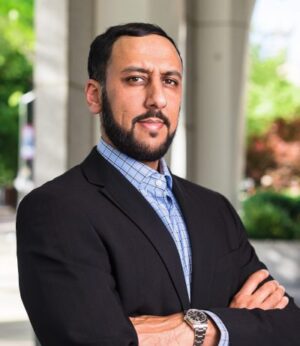Private: Shop
Showing 161–176 of 567 results
- Receivership—Distinction between Pre-Judgment Receivership to Maintain Business Operations
- Receivership to Carry Out Judgment
- Critical Importance of Terms and Provisions of Receiver Order—discussion of specific clauses—sample orders
- Reporting—importance of interim reports
- Role of receiver as agent of the Court and not of any of the parties
- Receivership borrowings during the case—use of receiver’s certificates
- Relationship to bankruptcy—turnover requirements and exceptions
- Wrapping up—discharge, exoneration of bondsmen, approval of final report and fees/costs
- Retroactivity of Dynamex and the “ABC test.”
- Duty to protect third parties.
- Conflicts between “form of title” and community property presumptions.
- The standard of review by clear and convincing evidence.
- Liability for recording a phone call without consent.
- Are water service rates a “tax” or a “fee.”
- Ancillary restraints within business-to-business agreements.
- Injuries to persons acting at behest of law enforcement.
- Minor infringements on a meal period.
- County district attorney’s authority to enforce the UCL.
- The constitutionality of bail.
TOPIC
VIDEO – HOW TO CIRCUMVENT A POTENTIAL STORM BETWEEN A BANKRUPTCY CASE AND A DIVORCE
Category
1 hour MCLE credit Viewing Time: 64 minutes As death and taxes often go hand in hand, divorce and bankruptcy are not far off on the list of perfect storm pairs in life. This video is designed for the legal practitioner who must avoid the twists and turns which could sabotage a bankruptcy case while in the midst of a divorce proceeding. The presentation will focus principally on bankruptcy automatic stay and discharge injunction questions; the significance in bankruptcy of the distinction between community and separate debt; the significance in bankruptcy of the distinction between community and separate property; divorce-derived fraudulent transfer litigation in bankruptcy; and how to avoid conflicts between rulings of the bankruptcy and family law courts. Please note each video is designed for continuous viewing until its conclusion. The viewing of this online video meets the criteria for “participatory” continuing legal education credit as verified by the Sacramento County Public Law Library, an approved State Bar of California MCLE provider according to the State Bar of California MCLE Rules & Requirements [Rule 2.7.2].TOPIC
Planning For Wartime Veterans: Aid & Attendance Benefits, What You Don’T Know (Self-study – 1 General MCLE credit)
Category
This educational video is designed for licensed attorneys and members of the public who want to know more about elder …TOPIC
VIDEO – Receivership – Overview Of An Often Overlooked Remedy
Category
2 hours MCLE credit Viewing Time: 105 minutes Mark A. Serlin and Greg K. Webster will integrate their extensive expertise in State and Federal Court receivership dealing with complex personal and commercial bankruptcy cases. Topics to be covered include:TOPIC
VIDEO – CALIFORNIA SUPREME COURT UPDATE 2020-2021
Category
1 hour MCLE credit Viewing Time: 59 minutes In this video, John R. Wierzbicki from the Witkin Legal Institute will discuss topics from recent critical California Supreme Court decisions, including:TOPIC
Advanced Tips & Tricks for Getting More Out of Westlaw (WEBINAR)
Category
This advanced legal research class will cover: (1) Boolean Searching (2) Words & Phrases (3) KeyNumbers (4) Cite Reference (5) …Continue reading "Advanced Tips & Tricks for Getting More Out of Westlaw (WEBINAR)"
TOPIC
Immigration Law: Indefinite Spousal Support Under Form 1-864
Category
The Affidavit of Support (I-864) is one of the most common reasons for USCIS Requests for Evidence (RFEs) and case …Continue reading "Immigration Law: Indefinite Spousal Support Under Form 1-864"
TOPIC
Legal Preparation for Naturalization Interview (WEBINAR)
Category
THIS WEBINAR IS OFFERED TO THE GENERAL PUBLIC AND DOES NOT QUALIFY FOR CONTINUING LEGAL EDUCATION CREDIT. Photo by Brandon Mowinkel on Unsplash …Continue reading "Legal Preparation for Naturalization Interview (WEBINAR)"
TOPIC
Navigating the New Town Square – Cultivating Competency in Basic Online Legal Research (WEBINAR)
Category
The goal of this course is to assist attorneys in navigating online legal research so they feel more confident and …TOPIC
Cybersecurity & Compliance Under the California Consumer Privacy Act (WEBINAR)
Category
Photo by Franck on Unsplash Don Vilfer, JD, President of Digital Evidence Ventures, will unpack the requirements and pitfalls of the California Consumer …Continue reading "Cybersecurity & Compliance Under the California Consumer Privacy Act (WEBINAR)"
TOPIC
Personal Injury Case: Throwing out the Adjuster Mindset-Adapting Case Strategy to Your Client’s Injuries (WEBINAR)
Category
Photo by Clark Van Der Beken on Unsplash In this webinar, Attorney Paul Hoybjerg will provide expertise on how to scrutinize all factors …TOPIC
Unlawful Detainers: Pitfalls and Procedures (WEBINAR)
Category
In this comprehensive webinar Attorney Aser Tolentino with Tenant Law Group, PC, A California Tenant Rights Law Firm, will cover: …Continue reading "Unlawful Detainers: Pitfalls and Procedures (WEBINAR)"
TOPIC
How to Circumvent a Potential Storm between a Bankruptcy Case and a Divorce (WEBINAR)
Category
As death and taxes often go hand in hand, divorce and bankruptcy are not far off on the list of …TOPIC
Researching Landlord and Tenant Issues on Westlaw (WEBINAR)
Category
This Westlaw session will cover research methods for the topics discussed in the earlier “Unlawful Detainer: Pitfalls and Procedure” webinar …Continue reading "Researching Landlord and Tenant Issues on Westlaw (WEBINAR)"
TOPIC
VIDEO – IMMIGRATION LAW: INDEFINITE SPOUSAL SUPPORT UNDER FORM 1-864
Category
1 hour MCLE credit Viewing Time: 63 minutes Speaker: Jesse Atwal, Atwal & Company The Affidavit of Support (I-864) is one of the most common reasons for USCIS Requests for Evidence (RFEs) and case processing delays. In this webinar Mr. Atwal will provide an overview of the recent status of the “public charge rule”, discuss best practices for effectively preparing Affidavits of Support and supporting evidence, and offer tips and strategies for preparing the new I-944 Declaration of Self Sufficiency in adjustment applications. Finally, the webinar will also discuss the consequences the affidavit of support plays in divorce proceedings. Featured Topics • Screening for Income Eligibility and Preparing an Effective Form I-864 or I-864EZ • Initial Evidence and Responding to RFEs When Income Is Complicated: Assets, Self-Employed Clients, and Irregular Income • Augmenting Insufficient Petitioner Income with Household Members, Co-Sponsors, and the Intending Immigrant • The Affidavit of Support Is No Longer Enough: Consideration of Other Evidence in an I-944 application Please note each video is designed for continuous viewing until its conclusion. The viewing of this online video meets the criteria for “participatory” continuing legal education credit as verified by the Sacramento County Public Law Library, an approved State Bar of California MCLE provider according to the State Bar of California MCLE Rules & Requirements [Rule 2.7.2].TOPIC
Elder Law Planning In Times Of COVID
Category
1 hour MCLE credit Viewing Time: 68 minutes Speaker: Heather Chubb Most people underestimate the risk of developing a disability and needing long-term care. A recent study by the US Department of Health & Human Services concluded that more than 50% of Americans 65 and older can expect to need long-term care for an average of two years. People with certain conditions, such as stroke, Parkinson’s, Alzheimer’s or other dementia, and multiple sclerosis, among others, can expect to need long-term care for much longer periods, the cost of which can be staggering. Planning for long-term care and end of life decisions is probably the most incomplete piece of an estate plan and the least understood. A plan that has equal emphasis on planning for wealth transfer and disability/incapacity will preserve options, preserve wealth, and keep families from being blindsided by the effects of long-term care. Please note each video is designed for continuous viewing until its conclusion. The viewing of this online video meets the criteria for “participatory” continuing legal education credit as verified by the Sacramento County Public Law Library, an approved State Bar of California MCLE provider according to the State Bar of California MCLE Rules & Requirements [Rule 2.7.2].TOPIC
Ethical Requirements And Considerations In e-Discovery (Self-study – 2 Legal Ethics MCLE credit)
Category
Nearly every litigation matter now should involve eDiscovery. The ultimate responsibility for how eDiscovery is handled rests with counsel and …Cart0
There are no products in the cart!

















